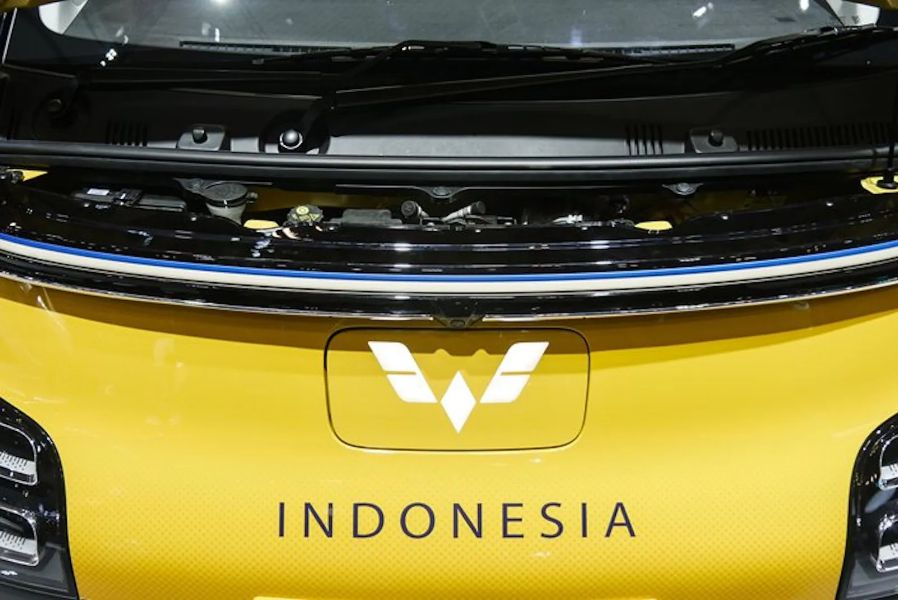
-
Published: 15 May 2023

Indonesia importing a fraction of the lithium needed to crank up EV battery production with no clear new source in sight.
Edited by| Christian Megan
Economic section - CJ journalist
JAKARTA - May,15,2023
Nickel-rich Indonesia may be on the cusp of an EV battery revolution, but it still lacks a guaranteed supply of lithium for it to become a reality by 2025, the year Maritime Affairs and Investment Coordinating Minister Luhut Panjaitan has targeted for the first battery plant to go into operation.
While a shortage of lithium appears to be the major impediment in the longer term, sources close to the HKML consortium blame much of the current delay on inevitable “regulatory issues” that have arisen since the project broke ground in Karawang, east of Jakarta, in September 2021.
Nothing has been said publicly about the delay, but the venture into EV battery making is a step up in added value from the previous focus on manufacturing stainless steel from class two nickel deposits in the three processing centers in Sulawesi and Maluku.
Indeed, HKML’s Karawang plant is part of a planned $9.8 billion integrated supply chain for lithium-ion battery production, from nickel mining to smelting, refining, precursor and cathode manufacturing.
Last year, in a trend Indonesia may be compelled to follow, POSCO announced plans to invest $4 billion in a new lithium mine in Argentina; in 2021, it also bought a 30% stake in West Australia’s Ravensthorpe nickel operation.
With Indonesia needing an annual 70,000 tonnes of lithium hydroxide to produce cathode material, IBC has raised the possibility of state mining holding company MIND-ID buying into an Australian lithium mine to ensure a long-term supply.
The International Energy Agency predicts worldwide shortages by 2025 and a recent Credit Suisse report figures that demand could treble over the next two years, with the US looking for alternative suppliers to reduce its dependence on China.
Australia is currently the world’s largest lithium producer, with last year’s output totaling 61,000 tonnes, or nearly half of global production as trade in all EV battery ingredients – and their price – ramped up exponentially.
Indonesia’s problem lies in the fact that Greenbushes and West Australia’s three other top producers are already committed. Only diversified conglomerate Wesfarmers, a retail giant made its first entry into mining, may offer hope of a long-term contract.
But its Mount Holland mine, lying 445 kilometers east of Perth, has also run into obstacles caused by inflation, rising costs, and labor shortages – a common story in Australia’s lithium mining and processing sector.
The mine contains an estimated 94.2 million tonnes of proven and probable reserves and is now not expected to be producing an annual 50,000 tonnes of lithium hydroxide from a Tianqi-run refinery at Kwinana, near Perth, until 2026.
Industry sources say the Indonesians have already had initial discussions with Wesfarmers and Chilean partner Sociedad Quimica y Minera (SQM). It may also be looking to Liontown’s Kathleen project and Core Lithium’s Mt Finnis venture near Darwin, in the Northern Territory, as other potential suppliers.
“Australia and Indonesia are logical partners,” says Jennifer Matthews, a former diplomat and now national president of the Australia-Indonesia Business Council. “It would be really good for the benefit of both our countries.”
“But the challenge for Indonesia is to find potential suppliers because it has become such a competitive space,” . “Lithium is a hotly sought-after mineral, so it depends on whether they can come up with the right sort of deal.”
Indonesia wants to produce three million lithium batteries a year by 2030; each will require about 8 kilograms of lithium, which translates into 240,000 tonnes of lithium hydroxide a year for two million electric cars and 13 million electric motorcycles.
Yet Bureau of Statistics figures show Indonesia’s lithium oxide and hydroxide imports in 2022, mostly from Chile and China, amounted to only 138 tonnes, less than in 2021 and only slightly more than in 2019 and 2020.
Panjaitan told the Australians that Indonesia’s “dream” of becoming the world’s EV battery king depends on partners “who trust and support each other and offer better regulations and more open investment.”
“We’re on our way to making a major transformation,” he said. “Even though many countries still underestimate us, not a few appreciate Indonesia’s big change because it has been able to survive global economic turmoil.”
The minister announced recently that Indonesia has proposed a limited free trade agreement (FTA) with Washington so that local companies in the EV battery supply chain can benefit from tax credits for shipping nickel products to the US.
It would be similar to a fast-tracked US trade deal with Japan last March covering EV battery minerals, including lithium, nickel, manganese, and cobalt – all part of US efforts to reduce its dependence on China for key components.
Under the 2022 Inflation Reduction Act, new guidelines for EV tax credits require a certain value of battery components to be manufactured or assembled in the US or by a free trade partner.
Indonesia has been trying to use its vast nickel reserves in eastern Indonesia to attract investment from the international battery and EV manufacturers since the ban on ore exports, the forerunner to looming bans on bauxite and copper concentrate.
Panjaitan has so far been unable to entice EV-maker Tesla, but earlier this month Ford signed a final investment deal with Brazil-owned PT Vale Indonesia Tbk and China’s Zhejiang Huayou Cobalt to build a $4.5 billion HPAL smelter in Morawali, Central Sulawesi.
{source}<script async src="https://pagead2.googlesyndication.com/pagead/js/adsbygoogle.js?client=ca-pub-4474625449481215"
crossorigin="anonymous"></script>
<!-- moss test ad -->
<ins class="adsbygoogle"
style="display:block"
data-ad-client="ca-pub-4474625449481215"
data-ad-slot="6499882985"
data-ad-format="auto"
data-full-width-responsive="true"></ins>
<script>
(adsbygoogle = window.adsbygoogle || []).push({});
</script>{/source}
